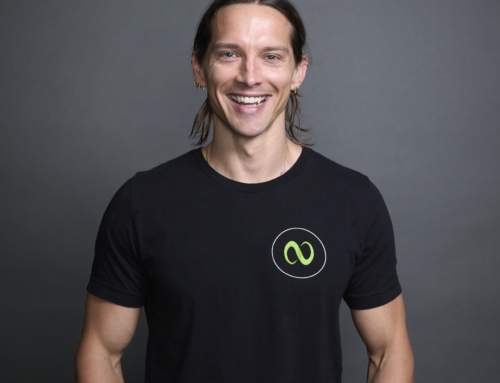by Charleene O’Connor…
What if someone had a magic pill that could make you feel calmer and more energized; something that could combat depression, shrink your waistline, improve your focus and productivity, regulate your hormones and boost your immune system? And what if I told you that magic pill is called sleep? Sufficient, quality sleep gives you all of these things and more. In fact, at Nimble Fitness we know that sleep could be the most important missing ingredient in your health program.
Over 40 million people in the US suffer sleep disorders. And all of us just lost an additional hour of sleep a week ago! A tired brain isn’t able to communicate its needs properly, which can lead to health imbalances and increase unhealthy habits. A sleep-deprived brain will also have a slower reaction time to any type of stimulus. You can take all the vitamins and drink all the caffeine you want, but sleep deprivation is sleep deprivation. And don’t count on recovery methods to contradict bad sleep (or a poor diet). Adults should sleep 7 or more hours per night on a regular basis to promote optimal health. Less than five or six hours of sleep will negatively impact human performance, mental health, cardiovascular health, immune function, pain tolerance and general health. More than 8 hours a night can improve all of the above! Lack of sleep can also result in weight gain. Woman who sleep five hours a night were 15 percent more likely to be obese than those who slept seven hours. Being sleep deprived hurts metabolic function, contributes to weight gain and makes weight loss more difficult.
Perhaps the most critical element of sleep for adults is recovery–sleep enables the body to heal itself. Sleep is actually not a passive activity; studies show during some sleep phases, parts of the brain are more active then they are when you are awake. As you rest, your body and brain are preparing and rebuilding themselves. Growth hormones, which promote cell reproduction and regeneration, are released into the bloodstream and the production of certain types of immune cells peaks. Sleep recovery also aids motivation, recovery of muscle strength, speed work and sprints, muscle glycogen (stored energy in the muscles), and helps stress regulation through balancing cortisol levels.
As we age, we sleep less and spend less time in slow-wave sleep. Amyloid beta, a key component of brain health, is cleared from the brain during slow-wave sleep. People who sleep less, or sleep badly, start to accumulate amyloid deposits over time, which can eventually lead to early onset Alzheimer’s disease. Sleep slows your heart rate and breathing, and causes your blood pressure to drop. It also changes the frequency of your brainwaves. Delta waves, the slowest frequency brainwaves, are linked to deep healing and only occur during the deepest part of your sleep cycle. These are the same brainwaves experienced in a meditative state.
So, if sleep is so important, how do we actually improve our sleep? Here are some Nimble tips for instantly improving your sleep:
- Blackout curtains for your bedroom, the darker the room the better.
2. Keep your bedroom decor simple, calm and clutter free. Put your work papers out of sight!
- Consider blue walls or adding blue to your bedroom. Gentle blue tones are widely believed to have a calming effect.
- Keep a notepad by your bed so you don’t have to worry about forgetting something; just write it down and go back to sleep.
- Try pre-sleep meditation, or calming music. Imagine a tranquil natural scene. This visualization could help you relax. Studies at Oxford University showed that those who used this technique would fall asleep twenty minutes sooner than those who did not picture the tranquil scene. Avoid counting sheep! This actually took people longer to fall asleep.
- Tech curfew! The light radiating from TV, phones, computers and iPads can disrupt your circadian rhythm. Our circadian clocks regulate our sleep, so using bright-screen technology near bedtime interrupts our natural circadian rhythms and will negatively impact sleep. Furthermore, A study at Harvard University Medical School found that particular frequencies of light disrupt sleep. Here’s a not-so-fun fact: The top 25% of social media users were 2-3 times more likely to have disturbed sleep than those in the bottom 25%! Turn off all your devices at least an hour before bedtime.
- If you consume alcohol, you’ll fall asleep more quickly but your quality of sleep will be poor. REM sleep is also decreased.
- Exercise regularly, just not right before bed. That can have the opposite effect!
“Who looks outside, dreams; who looks inside, awakes” Carl Jung
Sweet Dreams!
Charleene O’Connor




